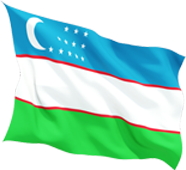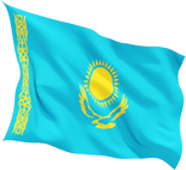Uzbekistan, located in the heart of Central Asia, faces unique environmental challenges that require an integrated approach and strategic planning. In recent years, the country has been taking active steps to protect the environment by integrating sustainable development into national programs and projects. These efforts are not only aimed at improving the environmental situation in the country, but also make a significant contribution to solving global problems. Uzbekistan actively participates in global initiatives to combat climate change. The country ratified the Paris Agreement in 2016, committing to reducing greenhouse gas emissions and adapting to climate change.
Environmental policy issues play a key role on the agenda of the New Uzbekistan. Measures to transform the sphere of ecology and environmental protection to improve the activities of our ministry, actions to combat climate change and its consequences, a moratorium on tree cutting, the introduction of clean “green” energy, solid waste management, the development of “green” transport infrastructure, expansion networks of protected natural areas, measures to restore ecosystems and preserve biodiversity, combat desertification and drought, unify environmental legislation in accordance with international standards, supporting the introduction of modern information technologies, show positive trends.
One of the key aspects of Uzbekistan’s environmental strategy is the development of a “green economy”. The state program “Green Economy” for 2019-2030 is aimed at reducing the carbon footprint, increasing energy efficiency and developing renewable energy sources (RES).
Moreover, the government of Uzbekistan has set ambitious goals to increase the share of renewable energy sources in the country’s overall energy balance. As part of the Development Strategy “Uzbekistan – 2030” and subsequent plans. As President of Uzbekistan Shavkat Mirziyoyev stated at the third Tashkent International Investment Forum held in early may this year, our country strives to create more than 20 gigawatts of renewable energy capacity by 2030 and increase its share in the energy sector. balance up to 40 percent. These goals include the construction of new solar and wind power plants, as well as the modernization of existing energy infrastructure.
In 2019, the law “On Renewable Energy Sources” was adopted, which creates a legal basis for the development of the green energy sector. The law provides benefits and preferences for investors, which stimulates the attraction of both domestic and foreign investment.
The development of “green energy” in Uzbekistan is actively supported by international organizations and financial institutions. Cooperation with the International Renewable Energy Agency (IRENA), the World Bank, the Asian Development Bank and other structures plays an important role. Investments and technical support from these organizations contribute to the rapid implementation of innovative technologies and best practices in the field of renewable energy sources.
Just last year, together with the strategic partners of Uzbekistan – the companies Masdar, Gezhouba, China Energy”, large wind and solar power plants with a capacity of 1.4 gigawatts were launched. Also, together with ACWA Power, we began implementing a project for the production of “green” hydrogen.
Currently, work is underway on the implementation of 28 eight projects in this direction. It is noteworthy that these important projects are carried out exclusively through foreign direct investment on the basis of public-private partnerships.
Achieving global sustainable development goals is no less important for the country.
In Uzbekistan, in 2022, an updated Resolution of the Cabinet of Ministers “On additional measures to accelerate the implementation of National Goals and Objectives in the field of sustainable development for the period up to 2030” was adopted, which confirms Uzbekistan’s strong determination in achieving the global Agenda for the period up to 2030 year in a comprehensive partnership with all UN member countries to achieve sixteen national sustainable development goals.
The National Goals and Objectives in the field of sustainable development for the period until 2030, the Plan of Measures for the effective implementation of the National Goals and Objectives in the field of sustainable development for the period 2022–2026, as well as the National Development Strategies of Uzbekistan, approved by the Government of our country, serve the implementation of the Goals of Sustainable Development development.
The achieved results in implementing the national goals and objectives of Uzbekistan are generally approved and recognized by the international community.
The basic principle of the new Uzbekistan “In the name of the honor and dignity of man” is consonant with the UN principle on sustainable development “Leave no one behind”.
In the Interagency Ranking of Sustainable Development Goals published by the UN (SDR) in 2023, Uzbekistan took 69th place among 166 countries, increasing its ranking by 8 points.
The Voluntary National Reviews prepared in 2020 and 2023 on the implementation of the national Goals and objectives of sustainable development of Uzbekistan until 2023 were positively assessed by the UN.
Uzbekistan has achieved significant results on all Sustainable Development Goals, which were balanced and interconnected with the implementation of the “Strategy of Action for Five Priority Areas of Development of the Republic of Uzbekistan in 2017 – 2021”
An analysis of the current state of protected natural areas in Uzbekistan and current trends in this area shows that in recent years the number and area of protected natural areas in the country have been increasing. Reforms are being carried out in the forestry sector, as a result of which the amount of forest land in the country has noticeably increased.
In this context, the initiative of President Shavkat Mirziyoyev “Yashil makon” (“Green space”) has become a truly national project. The forest area in relation to the total land area of Uzbekistan has increased over 7 years from 8.3% to 8.7%. The share of protected areas increased 2.0 times.
Uzbekistan actively participates in international mechanisms for environmental protection and human development. Various initiatives are being implemented to preserve biodiversity, restore ecosystems in the Aral Sea region, protect the ozone layer and mitigate the effects of climate change, and waste management. There are also policies and programs aimed at ensuring people’s access to healthy food and clean water. Uzbekistan cooperates with the European Union, its institutional bodies for environmental protection and sustainable development, as well as with individual states such as Germany, Finland, Turkey, and South Korea.
The country is a party to 14 international conventions, as well as more than 20 protocols, agreements and memoranda of understanding in the field of environmental protection and sustainable development.
Uzbekistan regularly takes an active part in the annual meetings of the UN Framework Convention on Climate Change. During the 27th meeting, held in 2022, the Uzbek delegation advocated consolidating efforts to achieve carbon neutrality, promoting renewable energy sources, climate change adaptation projects, combating desertification and land degradation, introducing water-saving technologies and other climate actions in Central Asia.
Another significant aspect was that the UN supported the initiative of President Shavkat Mirziyoyev to hold the first International Climate Forum in Samarkand in 2024, dedicated to climate change issues, which provides for a discussion of opportunities for international cooperation to reduce risks and threats in the Central Asian region and issues of attracting climate finance . During the 78th session of the UN General Assembly in September of this year. In New York, the President of Uzbekistan took the initiative to adopt the UN General Assembly resolution «Central Asia in the face of global climate threats: solidarity for common prosperity» and proposed discussing its main provisions at the Samarkand Forum.
Cooperation with the countries of Central Asia is critically important to address the many environmental challenges facing the region. Cooperation in this area contributes not only to improving the environmental situation, but also to strengthening regional stability and sustainable development.
Another significant aspect was that the UN supported the initiative of President Shavkat Mirziyoyev to hold the first International Climate Forum in Samarkand in 2024, dedicated to climate change issues, which provides for a discussion of opportunities for international cooperation to reduce risks and threats in the Central Asian region and issues of attracting climate finance . During the 78th session of the UN General Assembly in September of this year. In New York, the President of Uzbekistan took the initiative to adopt the UN General Assembly resolution “Central Asia in the face of global climate threats: solidarity for common prosperity” and proposed discussing its main provisions at the Samarkand Forum.
One of the most significant areas of cooperation between Uzbekistan and neighboring countries is water resources management. The transboundary rivers Amudarya and Syrdarya are vital for all countries in the region. Uzbekistan actively participates in international forums and initiatives aimed at the rational use of water resources and conflict prevention. Joint projects with Kazakhstan, Kyrgyzstan, Tajikistan and Turkmenistan include modernizing irrigation systems, introducing water-saving technologies and improving water basin management.
The problem of the drying up of the Aral Sea is one of the most acute environmental disasters in the region. The Aral Sea region is of international importance. In the second half of the 20th century, the state of the Aral Sea entered a phase of instability. This period, caused by anthropogenic impact, is characterized by a decrease in the volume and flow of water, an increase in salinity, a decrease in fish biodiversity and other negative processes. The shrinking Aral Sea has a significant impact on the ecosystems of all neighboring countries, its critical situation extends directly to Turkmenistan, Kazakhstan and Uzbekistan, in particular to the Republic of Karakalpakstan, Khorezm, Bukhara and Navoi regions, and indirectly to Tajikistan and Kyrgyzstan.
Restoring the Aral Sea requires joint efforts of all coastal states. Uzbekistan actively cooperates with Kazakhstan within the framework of the International Fund for Saving the Aral Sea (IFAS), implementing projects on reforestation, improving water supply and combating dust storms. These measures not only help improve the environmental situation, but also help mitigate the socio-economic consequences of an environmental disaster.
Desertification and land degradation are a serious problem for the countries of Central Asia. Uzbekistan is actively participating in regional projects aimed at combating these phenomena. Collaborative efforts include planting shelterbelts, restoring pastures, improving land management and introducing sustainable agricultural practices. Cooperation with Kazakhstan, Kyrgyzstan, Tajikistan and Turkmenistan allows for the exchange of best practices and technologies, which contributes to the effective fight against desertification.
Positive trends include the adoption of measures to increase the area of green space, a reduction in areas allocated for cotton and an increase in areas for growing vegetables, grains, fruits and fodder crops, as well as an increase in government support for the introduction of water-saving irrigation technologies.
Cooperation in the field of environmental education and knowledge exchange plays an important role in solving environmental problems in the region. Uzbekistan, together with neighboring countries, is implementing programs to increase environmental awareness of the population, train specialists and conduct joint research. This includes organizing conferences, seminars, training programs and exchanges of students and scientists. Such interaction contributes to the formation of a sustainable environmental culture and the training of qualified personnel to solve environmental problems.
Cooperation between Uzbekistan and the countries of Central Asia in the field of environmental protection is a key element of the regional sustainable development policy. Joint efforts to manage water resources, restore the Aral Sea, develop renewable energy sources, combat desertification and environmental education contribute not only to improving the environmental situation, but also to strengthening regional stability and prosperity. Uzbekistan continues to actively participate in international and regional initiatives aimed at solving common environmental problems, demonstrating its commitment to the principles of sustainable development and international cooperation.
In general, environmental protection in Uzbekistan is an integral part of the country’s sustainable development strategy. The measures taken to develop a green economy, combat climate change, protect water resources and promote sustainable agriculture not only improve the environmental situation in the country, but also make a significant contribution to solving global environmental problems. Uzbekistan demonstrates that an integrated and strategic approach to environmental protection can lead to a sustainable future, both nationally and globally.












